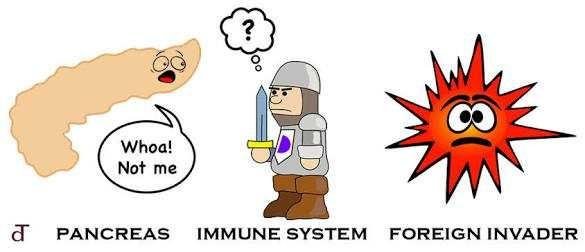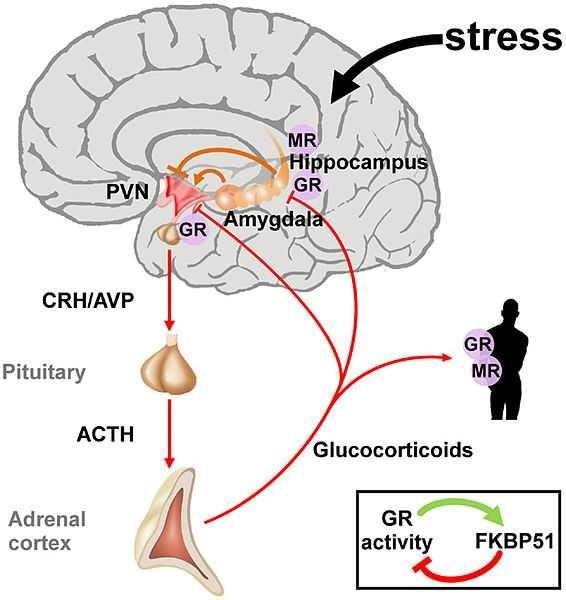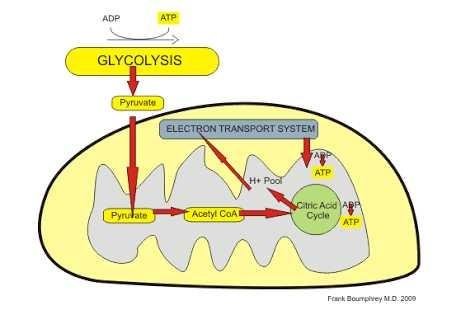Type 2 diabetes - mechanistic insights on how psychology changes physiology(part 2 - The plot)
What is the difference between zebra and humans? If you ask Robert Spolsky he would say that we have way too much free time to think ourself to illness.
Primates are super smart and organized just enough to devote their free time to being miserable to each other and stressing each other out. But if you get chronically, psychosocially stressed, you're going to compromise your health. So, essentially, we've evolved to be smart enough to make ourselves sick.
-Robert Sapolsky

An image by fantasticpicture | CC0
Well sounds about right. However, today we are going to ask how? How does our mind, fall into the trap of Diabetes.
Recap
In the last episode, we explored the correlation that exists between psychological stress and type 2 diabetes. We also agreed to treat our kids better. Well, because our stupid methods of discipling them, might be related to chronic diseases they might suffer with in adulthood. We also saw that mental illness - depression, anxiety, schizophrenia, mood disorders which are highly correlated with childhood stressors, can get diabetes, as part of the package.
However, we mostly focused on correlational studies. But that is never enough. If we want to pin point psychology as a culprit, we need to figure out the mechanism. At the end of the last blog we did see that the stress hormones, corticosteroids can alter body's response to insulin. But this is just a snippet of the larger picture out there.
Today, we will look at the details of the big picture. We will try to summarise, what we know already and what more needs to be done.
Stress and the wonky immune system

Image by Nutritional Doublethink | CC0
In my blog about biological underpinnings of depression, I mentioned how stress also activates inflammatory signalling in the body. It's intriguing, that your cells would secrete inflammatory cytokines to activate immune cells, when you watch the price of your shares or bitcoin fall. Probably, it has a lot to do with evolutionary function of stress response. Like, when you lose a fight with a predator or a dominant member of your own species but survive. In that case, it would be a good precautionary measure, to prepare your body to fight infections, that you may get from the wounds you got in that situation. Now just because you can simulate the bad situations in your brain, doesn't mean you have use a different allostatic pathway.
This is not a drill! Or maybe it is!
Right after the person has been exposed to a stressors, an increase in amount of different inflammatory cytokines can be seen in their blood(Marsland et al., 2017). These includes Interlukin-6(IL6), Tumor necrosis factor alpha(TNFα), and Interlukin-1β(IL-1β). The role of these cytokines is to activate and recruit cells of the innate immune system(macrophages, dendritic cells and neutrophils) to the tissue secreting them. For most part it appears as if the body is preparing itself for forthcoming injury.
The signal for secretion of these molecules seem to arise from the brain. When in response to stress the brain activates the sympathetic nervous system and your adrenal gland secrete epinephrine and norepinephrine, the norepinephrine activates NfKb protein in different cells of your body. These cells then secrete the cytokines mentioned above as a preparation for the battle(Slavich and Irwin, 2014).
Like the boy who cried wolf but this time they destroyed the jungle just for safety.

Image by Denali National Park and Preserve(NPS Photo/Neil Blake) | CC BY 2.0
Nevertheless, if the stress was transient and a non traumatic one, it would be in body's best interest to shut it down, once things are normal again. Like if you go for a war and there is no enemy, you retrieve. But what if the intelligence agency is giving you fake information over and over again? You better get in and check it for yourself. And probably, in the process cause a lot of collateral damage.
Well, in our body, the glucocorticoids and parasympathetic nervous system(the vagus nerve path) does the job of mellowing down the inflammatory response. The fact that you are more prone to infections during the stress you face in school exams is because cortisol has suppressed your immune system. However, with each episode of stress, your cells become resistant to glucocorticoids. It's like if enough people keep telling you that there is a ghost in the haunted house, you may eventually start considering the possibility. And once this happens you start accumulating the low grade inflammation in your body(Slavich and Irwin, 2014).
The dual face of glucocorticoids

Image by Raabe FJ and Spengler D_ | CC BY 3.0
Apart from this, the glucocorticoids released in response to stress have dual role. Depending on type, intensity, and duration of stress, they can act as both pro and anti-inflammatory(Liu et al., 2017). In fact in many studies glucocorticoids induce both inflammation and insulin resistance in rats. Either way, long term chronic stress will increase the low grade inflmmation in body. And in my previous blog we saw a clear evidence about how chronic low grade inflammation leads to development of type 2 diabetes.
Anti-inflammatory drugs can rescue both depressive and diabetic symptoms following stress.
In support of this, in 2016, Nagasawa published a study, showing that compound that inhibits action of glucocorticoids, also rescues inflammation and insulin resistance in stressed diabetic rat models. Moreover, in another mouse model 12 weeks of chronic stress shows both depression like symptoms and insulin resistance. Treating these animals, with a drug that blocks inflammation protects them from developing either of the two(Su et al., 2017).
Nevertheless, I would like to see the studies in stress induced diabetic mice models in which inflammatory cytokines receptors have been knocked out. That would be the final nail on the coffin of this mechanism.
Stress changes our metabolism.

Image by Boumphreyfr | CC BY-SA 3.0
In the last article, we did see that stress hormones can affect how cells respond to insulin. But, why would stress hormones do this? I mean think about it? Where do you need the maximum energy when you are stressed? Your brain of course, your heart because it needs to pump fast. So you need to stop glucose sinking into fat tissue and places which are not of priority and increase the supply of glucose in blood. And, you not only need to slow down glucose uptake, you also need to change how your mitochondria(the powerhouse of cells), in different tissues gets energy out of it. Now, it's ok to have high blood glucose and altered mitochondria function for time being. But do it chronically and repeated hyperglycmic abuse and mitochondrial alteration can pave its way to diabetes(See Picard et al., 2018).
From psychological stress to oxidate stress
The load imposed on mitochondria by stress can increase the reactive oxygen species or ROS. This increases the oxidative stress in the tissue. And what does oxidative stress do? Promotes Inflammation. What does systemic inflammation do? Promotes insulin resistance and obesity(Hayashi, 2014).
Fats - can't live with them, can't live without them!
Moreover, stress hormones also affects the lipid metabolism. Again, where do you think, your fast pumping heart can derive most of its energy from? Glucose compares nowhere to the energy that fatty acids can provide to your cells. It has been known for a long time that stress increases free fatty acids in circulation(Dimsdale et al., 1982 We already saw in another blog that free fatty acid can promote systemic inflmmation leading to insulin resistance. But we also saw something even more interesting. Free fatty acids can cause inflammation in hypothalamus. Inflammation in hypothalamus can then cause obsessive eating behaviour. Which made me wonder if stress alters our eating behaviour?
Feed me chocolates, I am sad.

An Image by Mooss | CC0
For a zebra being chased by a lion, its first response is not to eat but to run. So digestive system is usually switched off in intial stage of fight or flight response. But once you are safe, you might want to restore the energy you spent. Moreover, you may also want to increase the storage of food, incase you need it more next time. The late effects of chronic stress seems to do both. While cortisol in hypothalamus has been shown to induce hunger(Sefton et al., 2016); cortisol also signals fat tissue to increase. The switch from anorexia in acute stress vs hyperphagia in chronic stress, can be partially explained by what stress hormones do to your adipocytes. Well, they promote adipocytes proliferation and differentiation of preadipocytes to adipocytes. So what does more adipocytes do? Well for starters they can secrete more hormones which make you feel more hungry(Rabasa and Dickson, 2016).
Also, the initial and late effects of stress can be explained by the affect of glucocorticoids on insulin. In early phase glucocorticoids initiates insulin secretion from pancreas, but later it causes insulin resistance. The insulin resistance in hypothalamus and in reward pathway of brain makes your neurons fire, telling you to eat. Moreover, eating itself suppresses the stress response. It also increase the serotonin in brain, making you feel good. Which is why chocolates and even fatty food like bacon can be tastier when you are sad or just stressed(Sominsky and Spencer, 2014). I think, it would be a better idea to avoid chocolate and rather meditate, exercise or talk to someone when you feel stressed or sad.
awwww! Look at those bacteria in your gut, they are stressed for you.

Image by Tony Webster | CC BY 2.0
Yet another way stress modifies our metabolism, is by modifying the microbes that live in the gut. We already saw in the previous blog, that microbiome has profound effects on our metabolism. Microbes can affect what we eat, how it is absorbed from the gut, and how we process it. And, since we already saw that stress can modulate the immune responses, and the immune system interacts with our microbiome; It should not be surprising, that stress can alter the popopulations of of bacteria that live in our gut. I mean, in last blog, I already told you about, H. pyroli which causes ulcers, it finds stressed gut more homely.
Well, as far as psychology goes it appears that depression and anxiety patients have a very specific microbiome composition. For instance, you can take bacteria from feces of a depressed patient and put them into rat. Guess what happens? The rat starts showing depression like behaviour(Kelly et al., 2016). In support of this it was shown that social stress can alter the gut microbial composition in both humans and hamsters. From studies done in mice and rats it is also becoming clear that stress not only changes gut microbes, but it also changes permeability of gut. This not only changes what is absorbed by the body from the gut, but also the way microbes in gut interacts with body(Kelly et al., 2015). We already discussed previously, that how leaky gut can have more bacterial toxins floating in blood, promoting inflmmation even further. Nevertheless, further studies in this domain are required to establish a conclusive causal relationship.
One last thing before I say goodbye. In the gut microbiome and diabetes blog, I asked a question for @steembasicincome giveaway.
How do you think microbes can cause type 2 diabetes via psychological conditions or how psychological conditions can cause type 2 diabetes via microbiome path.
To this @mathowl replied.
Well when I am stressed I get chocolate or ice-cream cravings. So, according to your post, if I am stressed for a long period of time and follow my cravings then it might alter my microbiome which in the long run might lead to a higher risk of diabetes D:
Well, he was right I suppose. We already saw that stress can alter eating behaviour. Sugar and fats are comfort foods. And sugars and fats alter microbiome in a way that can lead to type 2 diabetes.
So we did see, that there do exist mechanisms by which psychological stress can affect our physical well being. I also wanted to discuss how meternal stress during pregnancy and early life are so crucial and sensitive to stressors. But again I think I might have already tested your attention span. So I am going to stop here and leave that part for another post. Hope you enjoyed reading.
The type 2 Diabetes series
Type 2 Diabetes - from the eyes of immune cells.
Type 2 Diabetes - The gut feeling that you might be a bacteria.
Type 2 diabetes - how psychology changes physiology(part 1 - character introduction)
Type 2 diabetes - mechanistic insights on how psychology changes physiology(part 2 - The plot)
Related blog
This is what depression is made of! - The biological underpinnings of depression
(Upcoming) Childhood stress - the primer in pathogenesis chain reaction.
References
Bonus Video
Stress, portrait of the killer
Signing off
@scienceblocks


Wow,
wonderful post SB. I think it's the best one of your diabetes series thus far.
Concerning NF-kB they also found that an ongoing activation of NF-kB in the brain is leading to more aging, the decline in muscle mass and bone density, weakness and eventually aging. Check out the article right here and if you got trouble check ... .
Oh, by the way, inflammation can be reduced by consuming Omega-3-fatty acids.
It's really a shame of our days that we are exposed to so many stressors.
Try to find your way and stay healthy
Best
Chapper
This post has been voted on by the steemstem curation team and voting trail.
There is more to SteemSTEM than just writing posts, check here for some more tips on being a community member. You can also join our discord here to get to know the rest of the community!
This was awesome!
Posted using Partiko iOS
Pretty sweet read. It turns out when we say "it's all in your mind" may not be so after all.
In terms of H. pylori, working in a hospital, they actually aren't seen that often.
Stool "pathogens", on the other hand, tend to be more common, not just because of surgeries, immunocompromised patients, etc. but I have noted conditions such as diabetes.
That's interesting. What pathogens do you usually spot in diabetic samples. I mean in case if you even identify them. Is there any pathogen that is more common?
The microbe population can be disturbed in diabetic patients. So, they are mostly gut flora growing out of proportions from the ones I've seen. They can be Clostridium, E. coli, certain Candida species, etc.
Obvious infections such as Salmonella or Campylobacter are usually due to external influences like food-borne illnesses.
Congratulations @scienceblocks! You have completed the following achievement on Steemit and have been rewarded with new badge(s) :
Click on the badge to view your Board of Honor.
If you no longer want to receive notifications, reply to this comment with the word
STOPThank you so much for using our service! Congratulations! This round earned an ROI of 16.60% with total bids of: 0.788$
You just received 73.56% upvote from @onlyprofitbot courtesy of @etcmike!
More portion of profit will be given to delegators, as the SP pool grows!
Comment below or any post with "@opb !delegate [DelegationAmount]" to find out about current APR, estimated daily earnings in SBD/STEEM
You can now also make bids by commenting "@opb !vote post [BidAmount] [SBD|STEEM]" on any post without the hassle of pasting url to memo!
* Please note you do not have to key in [] for the command to work, APR can be affected by STEEM pricesThankyou @etcmike for your generosity. This is really motivating.
Hi @scienceblocks!
Your post was upvoted by utopian.io in cooperation with steemstem - supporting knowledge, innovation and technological advancement on the Steem Blockchain.
Contribute to Open Source with utopian.io
Learn how to contribute on our website and join the new open source economy.
Want to chat? Join the Utopian Community on Discord https://discord.gg/h52nFrV
I've been considering these factors very heavily in my own research. Thanks for breaking this down in an easily digestible format. =)
Resteemed your article. This article was resteemed because you are part of the New Steemians project. You can learn more about it here: https://steemit.com/introduceyourself/@gaman/new-steemians-project-launch
Fantastic post!